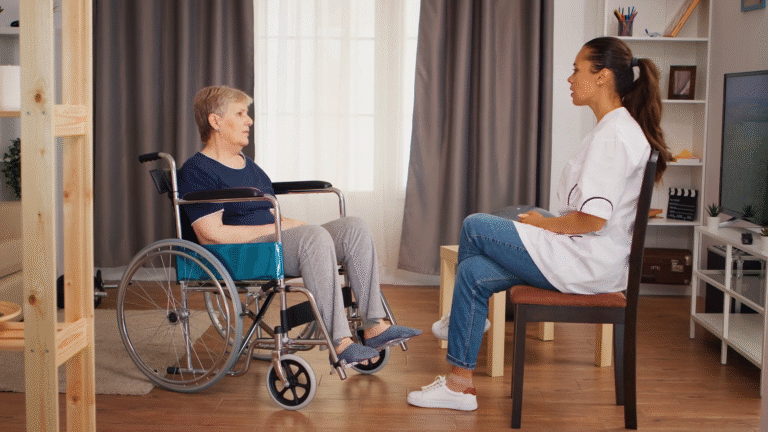Disability Buyout Insurance: The Essential Guide for Business Owners
Running a business is about planning for success, but it is just as important to plan for the unexpected. One of the biggest risks business owners face is the sudden disability of a partner or co-owner. Without a plan in place, a disability could lead to financial strain, business disputes, and even the collapse of the company. This is where Disability Buyout Insurance comes in.
This type of insurance is designed to protect your business by funding the buyout of a disabled partner’s share. It provides the money needed to smoothly transition ownership and keep the business operating without major disruptions.
In this guide, we will break down exactly how Disability Buyout Insurance works, why it is essential for businesses with multiple owners, what it covers, and how to choose the right policy.
What is Disability Buyout Insurance
Disability Buyout Insurance is a specialized type of insurance policy that helps fund the purchase of a disabled business partner’s share of the company. If a co-owner becomes disabled and can no longer participate in running the business, this policy ensures there are funds available to buy out their interest according to the terms of the business’s buy-sell agreement.
Unlike standard disability income insurance, which replaces a person’s income, Disability Buyout Insurance focuses on protecting the business structure. It ensures that the remaining owners do not have to scramble for financing or risk the company’s stability.
Why Disability Buyout Insurance is Important
Disability Buyout Insurance is one of those policies that most business owners don’t think about until it’s too late. The truth is, the risk of disability during working years is far higher than the risk of premature death. This coverage ensures that if one partner becomes unable to work, there is a clear, funded plan to transfer ownership without chaos, financial strain, or disputes.
Loss of Leadership and Decision-Making Power
When a business loses a partner to disability, the immediate challenge is leadership. Every owner brings something unique: some may handle financial planning, others may focus on client relationships, while another might drive innovation or operations. Losing even one of those functions leaves a noticeable gap.
For example, if a law firm partner who manages most of the high-value clients becomes disabled, the firm not only loses revenue but risks damaging client trust. The remaining partners now have to step into roles they may not be qualified for or prepared to handle, slowing down decision-making and weakening business performance.
Financial Strain on Remaining Owners
Imagine three business partners running a company valued at $3 million. Each owns a third, meaning each share is worth $1 million. If one becomes disabled, the remaining partners may suddenly need $1 million to buy out that partner’s share. Without Disability Buyout Insurance, they might resort to personal loans, draining company savings, or even selling off business assets.
The consequences are serious. Taking on debt increases monthly obligations, cutting into profits. Selling assets reduces future earning capacity. And using personal funds exposes the owners’ families to financial stress. Insurance prevents this by immediately providing the funds needed, allowing the buyout to happen without financial chaos.
Risk of Conflicts and Disputes
Money and ownership can quickly create tension. A disabled partner might feel their years of work deserve higher compensation, while active partners may feel pressured by limited resources. Family members may also step in, demanding what they believe is “fair value” for the partner’s share.
These conflicts often turn personal, straining professional relationships and sometimes escalating into lawsuits. A clearly written buy-sell agreement backed by insurance avoids this situation entirely. Everyone knows the valuation method, the timeline, and the funding source long before disability ever happens.
Business Instability
Businesses thrive on stability. But when ownership is unclear, the ripple effects spread fast. Employees may worry about job security and start looking elsewhere. Clients may hesitate to commit to long-term contracts if they sense the company is in transition. Suppliers might tighten credit terms, fearing late payments.
In competitive industries, even a hint of instability can push clients or customers toward competitors. Disability Buyout Insurance ensures continuity by removing uncertainty. The transfer of ownership is quick, clean, and fully funded, projecting confidence to everyone connected to the business.
How Disability Buyout Insurance Works
Disability Buyout Insurance works hand-in-hand with a buy-sell agreement, a legal contract that outlines how ownership is transferred if an owner retires, passes away, or becomes disabled.
Step 1: Establish a Buy-Sell Agreement
This document sets the rules for ownership transfers. It outlines how the business will be valued, who can buy out a disabled partner’s share, and the timeline for completing the transaction. Without this step, even insurance benefits can’t be used effectively because there is no legal framework to guide the transfer.
Step 2: Purchase Disability Buyout Insurance
Each partner is insured through a policy that matches their ownership share. The business or the other owners are listed as beneficiaries, ensuring funds go directly to the buyout. This guarantees that when the time comes, money won’t be a stumbling block.
Step 3: Triggering the Policy
Disability is not declared casually. Policies have clear definitions, and a partner must meet those criteria and remain unable to work for a specified waiting period (usually 12–24 months). This prevents misuse of the coverage and ensures it applies only in genuine cases of long-term disability.
Step 4: Lump Sum Payment
Once triggered, the insurance pays a lump sum equal to the value of the disabled partner’s share. This eliminates the need for partial buyouts, delayed payments, or borrowing, making the transition clean and final.
Step 5: Transfer of Ownership
The disabled partner receives fair compensation, and the remaining owners take over full control of the business. This avoids dragging out negotiations and allows the company to move forward confidently.
Key Features of Disability Buyout Insurance
Lump Sum Benefit
The most important feature is the lump sum payout. Instead of installment payments that might stretch over years, the business gets all the funds upfront. This ensures immediate liquidity to complete the buyout.
Customizable Coverage
Policies can be adjusted to reflect the business’s actual value. If the business is worth $2 million today but projected to be $4 million in five years, coverage can be reviewed and updated to keep pace with growth.
Tax Advantages
In most cases, the payout from Disability Buyout Insurance is tax-free, which increases the actual value of the benefit. This means every dollar goes toward the buyout rather than being reduced by taxes. Still, it’s wise to confirm details with a tax advisor.
Protection Against Disputes
Because the insurance payout is tied to the buy-sell agreement, there is no room for arguments about affordability or fairness. Everyone has agreed on the valuation method ahead of time, and the funds are guaranteed to be available.
Who Needs Disability Buyout Insurance
Businesses with Multiple Owners
Any company with more than one owner should consider this coverage. Without it, the cost of buying out a disabled partner can cripple both the company and the remaining owners.
Professional Practices
Professions like law, medicine, architecture, and accounting are especially vulnerable. Their value often lies in the expertise of the partners. Losing one without a buyout plan can destabilize the entire practice.
Family-Owned Businesses
Disability doesn’t just disrupt ownership, it can complicate family relationships. Without insurance, emotions and financial needs collide. Disability Buyout Insurance keeps business separate from family, ensuring fairness and avoiding resentment.
Benefits of Disability Buyout Insurance
Financial Stability
The insurance provides cash exactly when it is needed. This prevents the need for loans, asset sales, or draining personal and business accounts. Stability is preserved.
Business Continuity
A funded buyout keeps operations smooth and uninterrupted. Employees, clients, and suppliers see stability, which builds confidence in the company’s long-term future.
Peace of Mind
All owners can focus on running and growing the business, knowing that if disability occurs, there’s already a plan in place to handle it.
Preserves Relationships
Clear agreements and secured funding reduce emotional and financial stress, protecting both business partnerships and personal relationships.
Choosing the Right Disability Buyout Insurance Policy
Accurate Business Valuation
Coverage should be based on a realistic valuation of the company. Underinsuring creates gaps, while overinsuring wastes money on premiums. Regular updates keep coverage aligned with growth.
Clear Definition of Disability
Different insurers define disability differently. For example, some may require total inability to work in any occupation, while others only require inability to work in the insured’s specific role. It’s crucial to align the policy definition with the buy-sell agreement.
Appropriate Waiting Period
A shorter waiting period makes payouts faster but raises premiums. A longer waiting period lowers costs but can delay funding. Each business must balance affordability with practicality.
Policy Structure
Policies can be structured in several ways: owned by the business, owned by individual partners, or cross-owned between partners. Each has different tax implications and operational effects, so it’s wise to consult both legal and financial experts.
Common Mistakes to Avoid with Disability Buyout Insurance
Underestimating Coverage Needs
Many businesses choose coverage based on current values but fail to update it as the company grows. This can leave a significant funding gap when disability actually occurs.
Not Updating the Buy-Sell Agreement
Businesses evolve. Ownership percentages shift, valuations change, and partners come and go. A buy-sell agreement that isn’t updated regularly becomes outdated and unreliable.
Ignoring Tax Implications
Tax rules vary by jurisdiction, and the structure of the policy can determine how benefits are treated. Skipping professional tax advice could lead to unexpected obligations.
Final Thoughts on Disability Buyout Insurance
A business is more than just a source of income; it is the result of years of hard work, dedication, and vision. Disability Buyout Insurance is not just a financial product; it is a safeguard for that legacy.
By ensuring there are funds to buy out a disabled partner’s share, this insurance protects the business, the remaining owners, and the disabled partner’s family. It prevents financial strain, avoids disputes, and ensures the company can move forward with confidence. If you are a business owner with one or more partners, this is not coverage you can afford to overlook. Speak with an experienced insurance professional to structure a policy that aligns with your buy-sell agreement and the unique needs of your business.





